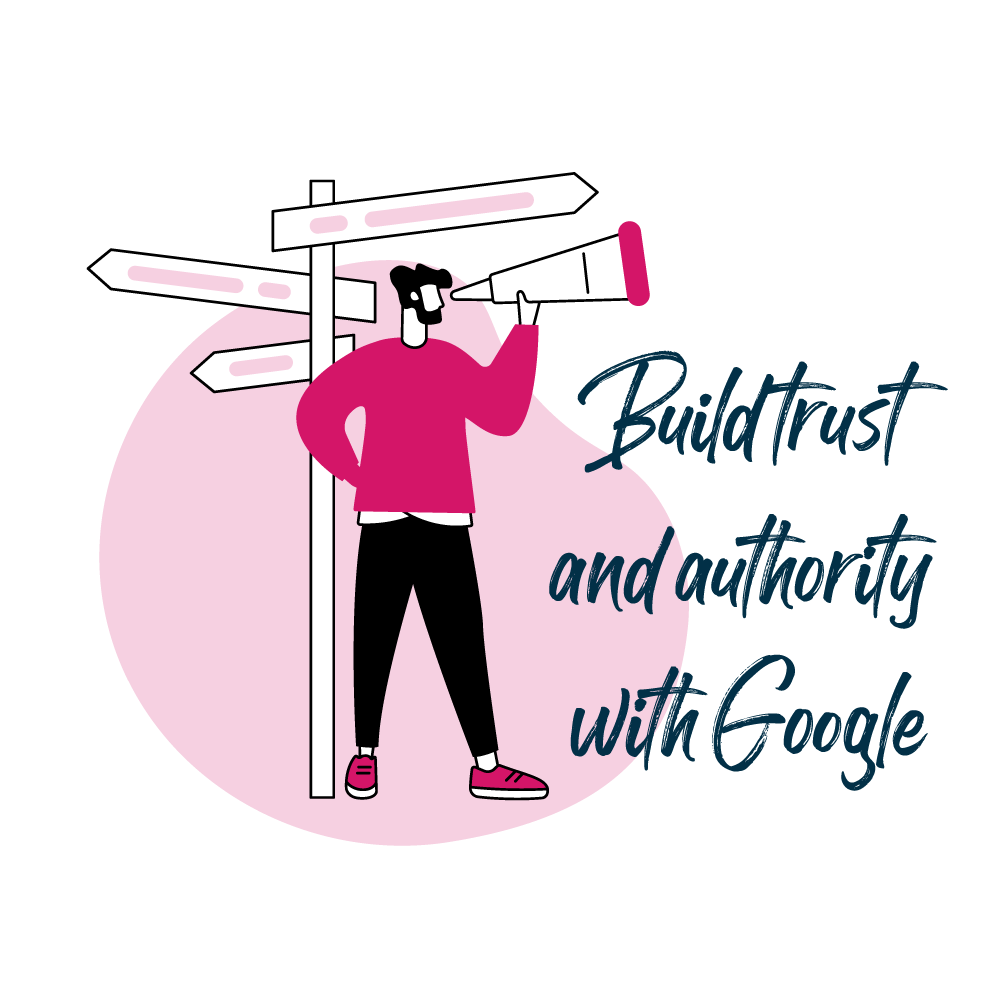
Ongoing SEO
Congratulations on launching your new website. However, this is not the time to sit back and relax though. SEO is an ongoing effort and you've got stay on the ball. As long as search engine technology evolves and consumer behaviour changes, so will SEO. That means it is time to monitor your Google ranking and your backlink building and continuously optimise your keywords and content for ranking and conversion.
Our ongoing SEO services can help to maintain your website maintains visibility and relevance amidst changing algorithms and user preferences.
What's included:
- Monthly monitoring of organic keyword ranking
- Ongoing SEO updates to on-page optimisation and local SEO
- One content blog per month
- Monthly backlink audit
- Monthly site health audit
- Monthly update call

SEO - it's not a sprint. It's a marathon.
Keep moving forward. SEO is not a one-time effort, but a continuous journey. Your SEO strategy demands consistent upkeep to adapt to evolving trends, implement new insights, and maintain trust and credibility with Google.
Regular maintenance: Ongoing SEO involves regular tasks like updating content, fixing broken links, and ensuring your website is technically sound.
Adapting to changes: As the seasons change, your SEO strategy requires adapting to changes in search engine algorithms and user behaviour. This might involve tweaking keywords, creating fresh new content, or improving website speed.
Earning trust and authority: Ongoing SEO aims to increase your website's visibility with Google. This means winning Google's trust and authority. It involves continuously creating high-quality content, building backlinks, and engaging with your audience.
Clued in ... Clued up ... Clued on !!!
FAQs: Ongoing SEO
What is domain authority?
Think of Domain Authority as a grade given to a website based on how trustworthy and authoritative it seems to search engines like Google. The higher the Domain Authority score, the more likely the website will rank well in search results.
Factors that contribute to Domain Authority include the quality and quantity of inbound links to the website, the website's overall content quality, and its overall reputation on the internet.
So, if a website has a high Domain Authority, it's more likely to show up higher in search engine results pages, making it more visible to people searching for relevant information.
What are backlinks and why are they important?
Backlinks are incoming links from one website to another. On the other hand, links from one page to another page within the same website (domain) are called internal links.
Backlinks can benefit your SEO performance. They can also be perceived as recommendations, which builds trust. Google likes that.
What is a backlink audit and why do I need it?
Backlinks are important for authority building, a gauge how much Google trusts you. Bad backlinks can, however, harm your authority as Google thinks you don't want to play by the rule book.
A backlink audit looks at your domain’s backlink profile and helps you to identify the links that may positively or negatively affect your rankings and take prompt actions. Backlinks are important for authority building, a gauge how much Google trusts you. Bad backlinks can, however, harm your authority as Google thinks you don't want to play by the rule book.
How to build backlinks the right way?
Building backlinks the right way involves getting other websites to link to your site in a natural, organic manner. Here's a simple guide:
- Create High-Quality Content: Produce content that is valuable, informative, and engaging for your target audience. Quality content naturally attracts links because people want to share helpful or interesting information.
- Guest Blogging: Write guest posts for reputable websites in your industry. Include a link back to your site within the content or author bio. Make sure the content you provide is relevant and adds value to the audience of the website you're writing for.
- Reach Out for Mentions: Identify websites or blogs that mention topics related to your content but don't link to your site. Reach out to them and politely ask if they would consider adding a link to your relevant content. Personalize your outreach and explain why your content would be valuable to their audience.
- Broken Link Building: Find websites in your niche that have broken links (links that lead to pages that no longer exist). Reach out to the website owner and suggest replacing the broken link with a link to relevant content on your site.
- Create Infographics or Visual Content: Visual content like infographics can be highly shareable. Create visually appealing and informative infographics related to your niche and distribute them on social media platforms, blogs, and other websites. Make sure to include a link back to your site.
- Participate in Communities and Forums: Engage in online communities and forums relevant to your industry. Contribute valuable insights and solutions to discussions, and include a link to relevant content on your site when appropriate. Avoid spamming or self-promotion, as this can have a negative impact.
- Monitor Competitor Backlinks: Identify websites that link to your competitors but not to your site. Reach out to these websites and pitch your content as a relevant resource they may want to link to.
Remember, building backlinks should be a gradual and natural process. Focus on creating high-quality content and building relationships with other website owners in your industry. Avoid black hat tactics like buying links or participating in link schemes, as these can harm your website's reputation and result in penalties from search engines.

We Are All Ears.









